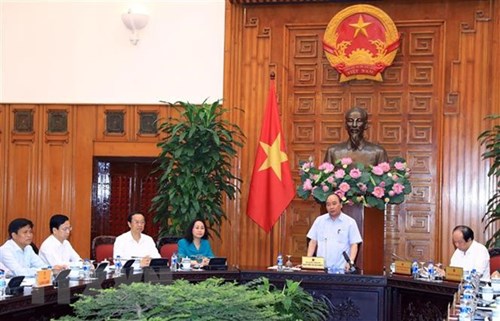With a 230km long borderline with China and many border gates and markets, and its position in the economic corridors of Nanning (China) – Lang Son – Hanoi – Hai Phong and Lang Son – Ha Noi – Ho Chi Minh City – Moc Bai, the province should develop the border economy, capitalizing on the giant Chinese market, he said.
The province serves as an important gateway connecting China and the Association of Southeast Asian Nations (ASEAN), which, the leader said, would facilitate border trade and services.
    |
 |
|
Prime Minister Nguyen Xuan Phuc speaking at the working session |
The PM urged Lang Son to step up e-commerce and hold international trade fairs or investment promotion conferences in order to attract more attention of foreign cities, provinces and businesses to Vietnamese products.
In addition, he asked Lang Son to develop agro-forestry in mountainous and rural areas, focusing on forestation and forest protection.
Apart from economic development, the leader listed other tasks for the locality such as strengthening the friendship with China, ensuring security and national defence, and focusing on high-tech agriculture, new-style rural area building, sustainable poverty reduction, health care and education, especially in remote and disadvantaged areas.
PM Phuc noted that Lang Son is still a poor province, with the rate of poor households exceeding 19 percent as compared with the national average of only 7 percent.
Chairman of the provincial People’s Committee Pham Ngoc Thuong reported at the meeting that the province’s annual economic growth rate reached 8 percent and GDRP per capital income hit 35.6 million VND (1,530 USD) in 2017.
Over the past time, Lang Son has focused on the border economy with the purpose of making it a driving force for economic growth and economic restructuring.
Source: VNA